Displaying items by tag: overnight summer camp
Summer Camp May Improve College Admissions Odds
 Kelli B. Grant | CNBC -Sunday, 27 Apr 2014 | 10:00 AM
Kelli B. Grant | CNBC -Sunday, 27 Apr 2014 | 10:00 AM
How you spend your summer vacation isn't just fodder for first-day-back-in-school essays. It could provide a boost on college or job applications—especially if you went to camp.
Colleges have been getting more selective in recent years. In 2012, the average four-year college accepted 63.9 percent of applicants, down from 69.6 percent in 2003, according to the National Association for College Admission Counseling. Many are even more selective. This year, Yale University accepted just 6.26 percent of applicants, down from 6.27 percent a year ago and 11 percent in 2005, according to educational consulting company IvyWise. Cornell University accepted 14 percent, versus 31 percent in 2005.
Grades and standardized test scores are still the top factor for admission, but educational counselors say colleges are starting to take a harder look at extracurricular activities, particularly those over summer vacation. "Parents assume their kids need to be even more competitive on grades," said Eric Greenberg, founder and director of education consulting firm Greenberg Educational Group. "What has happened, ironically, is the opposite."
To colleges, summertime is like the hiatus between jobs a prospective employer would ask about, said Mark Kantrowitz, senior vice president and publisher at Edvisors Network. "Colleges want to understand, what have you been doing with yourself?" he said. "What happened during that gap?" The answer can be telling of what a student will do on campus.
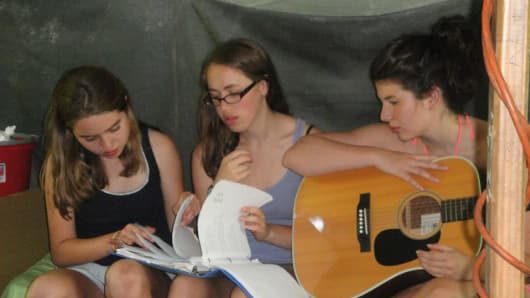
Parents shouldn't immediately race for the nearest camp sign-up sheet. While there are surely college admissions officers with fond memories of lake swims and archery, the camp experience that is more likely to stand out is a specialized one that speaks to a student's interests, experts say. Summers at soccer camp can help show a would-be college athlete's dedication, for example, while theater camp can be an edge for someone applying to the acting program—especially if the high school's drama program is so-so (or nonexistent).
Focused camps aren't that difficult to find. Half of day camps have some kind of academic activities or areas of study, and one-third offer a STEM (i.e., science, technology, engineering or math) program, according to the American Camp Association.
"By being stronger on the extracurricular activities, you can actually make up somewhat for weaknesses academically," Kantrowitz said. It's no slam dunk, though. "Not everyone is going to yield a benefit, but it's something that distinguishes you," he said. (Considering, however, that some camps can cost upwards of $1,000 per week, it's worth pointing out that extra experience in a student's areas of interest could just as easily come from a summer course at a local college, volunteer experiences or work, he said.)
Steven Infanti, associate vice president for admissions at Harrisburg University of Science and Technology, said a STEM camp experience is something that makes him take a closer look at a student's application. "When I look at an applicant who has a 2.5 [GPA], which would be kind of a borderline admit for us, but I see on his application, I participate in this camp…that shows a lot of initiative and someone who has a passion," he said.
For higher-achievers, relevant camp experience may put them in the running for the university's fellowship program, which pairs 15 incoming freshmen with faculty for research projects, among other advantages.
Colleges may also find longer camp relationships interesting, even if the camp isn't academically focused. "The regular camper who becomes a counselor is a good type of continuity," Greenberg said. That kind of camp experience can indicate positive qualities such as leadership, resilience and good social skills, he said.
That's the kind of story Oberlin College freshman Talia Rodwin expressed in her application essay. Rodwin, 19, has been attending Habon Dror Camp Moshava in Silver Spring, Md., since 2006 and plans to return this summer for her second year as a counselor. (The youth movement camp emphasizes sharing, leadership and communal responsibility.) "I wrote about my camp experiences and community," she said. "I explained how I think of myself as a community builder…and I think that had an impact."
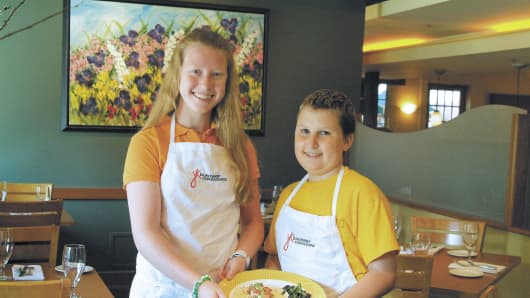
While camp as an application booster isn't a guarantee, it could have other benefits for a college-bound student. Overnight camps can offer a taste of independent living (or at least, living away from mom and dad). The right camp could even help solidify a career path, reducing the chance of a five- or six-year stint at a four-year college while an undeclared student explores options.
"If you go to summer camp and you decide because of the camp that this is what you want to be, you're going to be much more focused as a student," Kantrowitz said.
When he was in middle school, Simon Solis-Cohen, now 23, signed up for a magic camp through Julian Krinsky Camps & Programs in Pennsylvania. He liked it so much that the next year, he tried one of the group's business camps. Then, in the summer leading up to his freshman year of high school, he discovered cooking camp. "It really opened my eyes," Solis-Cohen said.
He was so enamored with cooking that he started working weekends during the school year at the camp chef-instructor's restaurant, then attended college at the Culinary Institute of the America. "I ended up using this as my launching pad," said Solis-Cohen, who is currently with Grgich Hills Estate in Rutherford, Calif., after a stint at renowned Napa Valley restaurant The French Laundry.
As Solis-Cohen discovered, camp can even be a kick-starter for jobs down the line—provided the experience backs up other bona-fides. "Camp is about the social experience of working with other young people in a group setting that's outside your comfort zone," said Chad Oakley, president and chief operating officer of executive search firm Charles Aris, Inc. "That in itself is 50 percent of success in a business environment."
But it's no job shoe-in. "You might get the interview because you went to math camp, but you'd actually get the job because of your ability to interface with people during the interview," said Oakley.
Showcasing a camp experience during the college admissions process can be done in a handful of ways. It might be listed as extra-curricular activities on the college application, or a particularly meaningful experiences worked into the essay portion.
"If you had a transformative experience at the summer camp or a big impact on others, that tells them more about who you are as an individual, especially if you can write about how it set you in a particular direction," Kantrowitz said. "If something is of interest to you, you're more likely to write a passionate essay."
Favorite counselors or camp directors should also be considered for letters of recommendation. "Relatively few students submit letters from outside [school] or that are job-related," said Greenberg. "That can be enormously valuable."

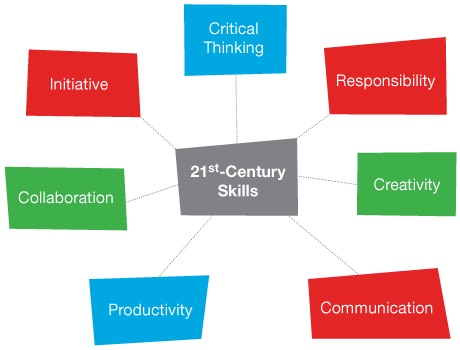
Overnight summer camp is more than Fun & Games. Sure, the plan is to have fun and make new friends. Research is showing that computers and robots will take away many jobs in the future. But what technology can not achieve, are the soft interpersonal skills. Living with others in a communal setting like camp provides campers to learn empathy, problem solving skills, leadership and independence.
The Top 10 Outcomes of Experiential Learning at Camp
“Camp is an experience every child deserves,” according to the American Camp Association (ACA), which accredits more than 2,400 camps serving more than 7.2 million children and teens. Specifically, ACA points to the "joy" kids experience when they make new friends and the inherent value in unplugging from their electronic devices, enjoying being out of doors, connecting with other young people, and learning about themselves.
And the ACA adds that, from a quantifiable perspective, the outcomes of a summer camp experience include the same skills that are needed in the 21st Century.
-
Friendship skills: Make friends and maintain relationships.
-
Independence: Rely less on adults and other people for solving problems and day-to-day activities.
-
Teamwork: Be more effective working in groups of peers.
-
Family citizenship: Gain attributes important to being a member of a family.
-
Perceived competence: Believe that they can be successful in the things they do.
-
Interest in exploration: Be more curious and eager to learn new things.
-
Responsibility: Learn to be accountable for their own actions and mistakes.
-
Affinity for nature: Develop feelings of emotional attraction toward nature.
-
Problem-solving confidence: Believe they have abilities to resolve problems.
-
Spiritual well-being: Develop purpose and meaning in life.
Gaining experience in these highly valued non-cognitive or soft skills will be life changers for today's youth. Cap provides a safe place to hone leadership and social entrepreneurship skills.
10 Reasons to Send Your Child to Overnight Summer Camp
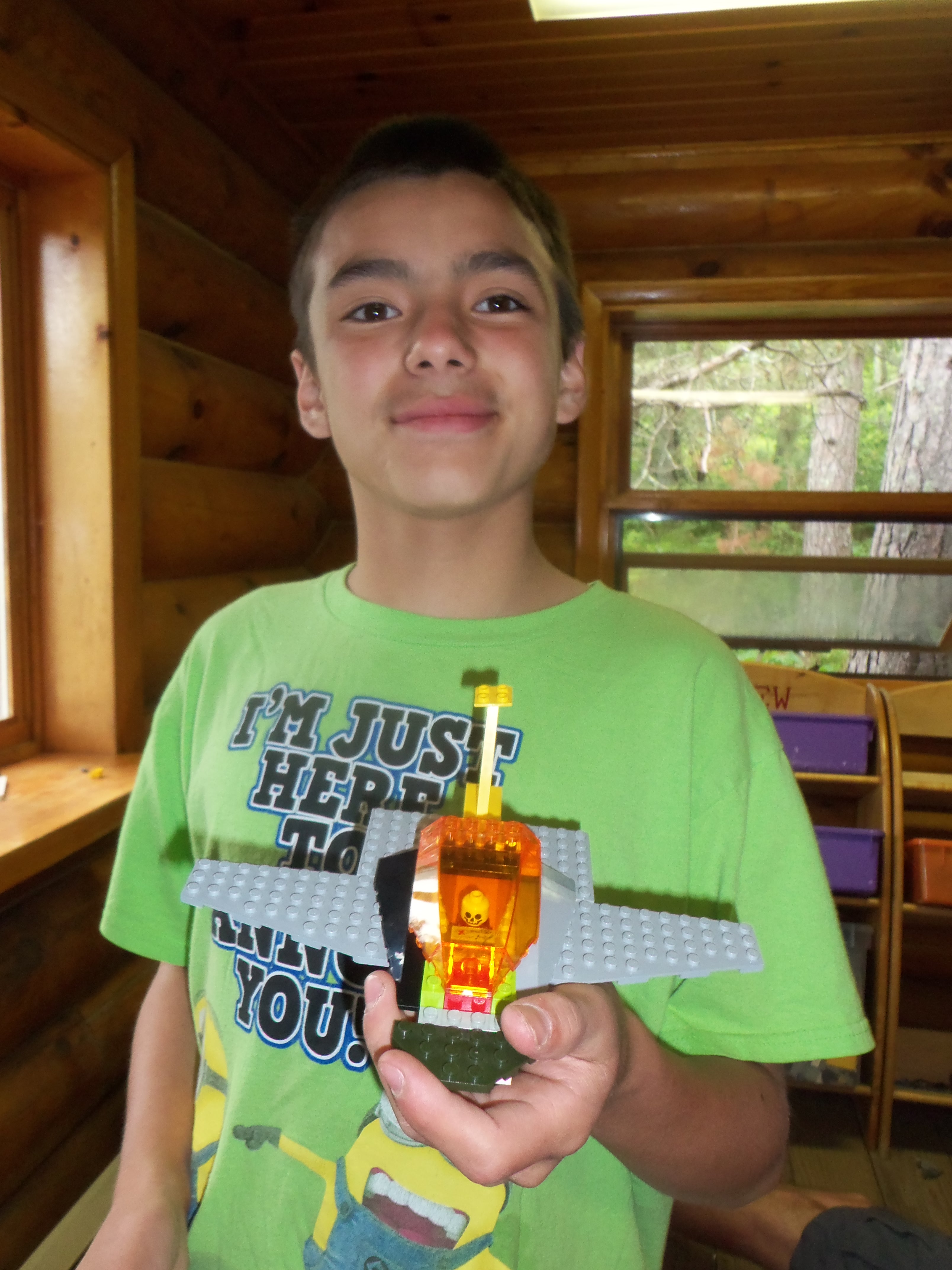
1. Exposure to diversity-Camp connects kids to those who they may not normally meet. Kids learn the world is a big place with lots of people, who might do things differently than they’re used to. That includes other kids from all over the state and beyond – and the camp’s counselors and leaders, who serve as positive role models who can leave a huge impression. They’re not seen as strict “law enforcers” but older, “cool friends” who care about them.
2. Self-esteem boost-When kids are at camp, they don’t have mom and dad there to help them approach people and make connections. They have to put themselves out there, it teaches the kids confidence when making friends from all over.
Learning how to canoe or developing archery skills also makes a child realize how capable he or she is to learn and grow. According to the American Camp Association, 92 percent of kids who attend camp say that the people at camp helped them feel good about themselves.
3. Attune to nature-Camp gets kids outdoors and enjoying nature. Kids today spend much less time outdoors, causing a “nature deficit” according to many reports and a popular book on the issue, Last Child in the Woods by Richard Louv. But camp reconnects them with nature, seeing things like frogs and trails in person and experiencing swimming in a lake or biking along a path.
4. Develops independence-It’s a great way to encourage self-development and also develop independence. Kids are empowered at camp to take care of themselves, with guidance from camp counselors. Bedtimes are set and schedules are packed, but children still have to get themselves up and ready, make their camp beds and find their way to the mess hall. And kids a little too attached to mom and dad can learn how to trust themselves to make decisions and take care of themselves.
5. Instills leadership skills-It teaches them important leadership skills because camps allow kids to make choices and direct summer projects, they’re natural leadership training places. These kids are less likely to be affected by peer pressure and more likely to set the pace and tone for other kids – and feel empowered in tasks they take on throughout their lives.
6. Gives wonderful memories-Camp builds good memories for the future, to enjoy the summer with a lake-front experience, swimming and meeting new friends. Kids have tons of memories of the good times, silly shenanigans and fun activities. It’s a time of discovery and self-improvement that stays with a kid long into adulthood.
7. Helps them make friends-They get to become lifelong friends with people they don’t necessarily live right next door to.
This offers a unique opportunity for your child to branch out in the buddies he or she has. Navigating and building these friendships over the summer also teaches children how to be more socially confident – something they can take back to school with them in the fall.
8. Gets them active-Camp helps kids learn how to be kids again. In this technology-filled world, camps cut back on distractions. Many effectively ban cell phones and computers, so kids can truly take advantage of all summertime has to offer. That means those prone to sit on their duffs and text or play video games are forced to get up – and get moving!
9. Develop interests-Camps are a nurturing environment for a child to explore activities and programs that could turn into lifelong passions. With so much to do at summer camp (archery, swimming, canoeing, crafts, etc.), there are many fun activities for kids to discover.
That’s why it’s the perfect place for your child to tap into an interest that he or she wants to carry on after camp is over. Did your daughter go ga-ga for horseback riding? Perhaps she’s a budding equestrian who would enjoy regular lessons.
10. Occupies the summer-Most parents work over the summer. After all, when school lets out, kids have to go somewhere to spend their time. Camp isn’t just a “parking spot” for kids, though: It also offers fun, excitement and lessons that last.
Source: MetroParent.com
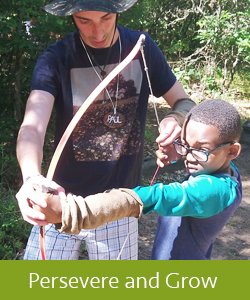 My “Happy Place” is often the response campers give when we ask them to describe their time at Swift Nature Camp. As the Director, part of my job is to stand back and observe. What I see from Campers & Staff is smiles, I hear laughter and notice a relaxed atmosphere all of which facilitate camp joy.
My “Happy Place” is often the response campers give when we ask them to describe their time at Swift Nature Camp. As the Director, part of my job is to stand back and observe. What I see from Campers & Staff is smiles, I hear laughter and notice a relaxed atmosphere all of which facilitate camp joy.
We all want happy kids. Meet Dr Martin Seligman who is a new breed of psychologists called Positive Psychologists. They ask not what is wrong with people, but what is right. They research what makes us do well in life and the reasons why some people thrive and find success and happiness in life.
We first have to agree that happiness is internal that can be shown externally or not. So instead of using a one-dimensional definition that’s dependent on momentary emotions and personality traits, Dr. Seligman has developed a more thorough theory of well-being that moves beyond the standard happiness traits.
PERMA is what Dr. Seligman uses to define his theory and the five measurable elements he has determined lead to well-being. Camp is filled with these PERMA Pillars and maybe thats why SNC is a “Happy Place”.
P: Positive Emotion-Is feeling happy, having positive thoughts about yourself, the people around you, or your surroundings. When someone reports they are feeling content, relaxed, or happy, then they are experiencing positive emotions. At camp, positive emotions are the norm, not the exception. We’re singing; we’re dancing; we’re doing skits that don’t make sense but that cause us to laugh so hard our stomachs hurt. Whether we’re telling jokes and stories around the campfire or just entertaining ourselves talking and hanging out together, positive emotion is literally swirling around camp. You can almost see a haze of happiness and fun surrounding everyone at camp.
E: Engagement-is being interested in and connected to what they are doing. When you’re engaged in your hobby, book or school, you’re fired up about learning something new and energized by the activity. Camp constantly exposes kids to new experiences and challenges – both recreational and social – that get them interested and excited to learn. They’re pushed to get outside their comfort zone to really engage and succeed.
R: Relationships-As Dr. Seligman says“other people are the best antidote to the downs of life and the single most reliable up.” Our life’s relationships – with our parents, our siblings, our friends, our spouses, and our co-workers – are key to our happiness. At camp we see old friends, make new friends, and just spend quality time building connecting with others. Camp is an oasis that is competition and stress free, built on positive relationship building, often giving campers tools they can take and use at home.
M: Meaning- Comes from “belonging to and serving something you believe is bigger than the self.” A team, religion, family. Cabin life helps kids gain an understanding of how valued they are. Swift shows campers what it means to be a valued and be an accepted member of a community. No camper is invisible, daily they connect with others, camp promotes integration. Kids learn that they are an important and valued member of their cabin group, and they discover their character strengths through recognition from peers and counselors. Campers learn the power they have by positively impacting others with friendship, gratitude & kindness.
A: Achievement-People flourish when pursuing goals not just mastering a skill. So, while having a great achievement is wonderful, much of flourishing comes from the striving towards the achievement. Ralph Waldo Emerson understood this by explaining, “Life is a journey, not a destination.” Daily at SNC, kids have the opportunity to try new things and master new skills. Simply practicing and working towards improving or challenge themselves to try something new adds to campers self confidence and their flourishing at camp.
We hope that whether your child has been at camp for 1 year or many, you see the positive impact Swift Nature Camp has had on your child. We all want happy kids. PERMA is just one way we can better prepare children for adult life and how we deal with difficult situations when they occur. PERMA is just another skill that SNC provides to its campers and one we hope you can use in your home.
It's summer camp time and your child is excited about the adventure that awaits, however you can help them have a more successful time by having the below conversations.
Talking About Camp
It's best to start talking about camp early on. This can be stories of your own experiences or of friends and relative. Maybe even a story book about camp. Be sure they are positive experiences, this is not time for Friday the 13th. Then I like to ask "If you were going to camp what activities would you like to do". This question can give you incite to what they are thinking. Remember, your child may not be ready for overnight camp and that OK. It is important to realize that most campers go to overnight camp between 8-10 years of age. Often this seems young for parents but kids are generally ready if encouraged. It can get harder the older a child gets. A handful of overnight camps like Swift Nature Camp offer a Discovery Camp only for 1st time campers, where additional support is on hand to make the first time camp experience a success. If your child is really reluctant you might try suggesting a friend or relative would enjoy the adventure as well and go to camp together. This go with a friend can often help a child agree with the whole camp idea.
Find a Camp
This can be fun to hit the internet and look at all the options available. For younger campers it is best to pick 3 or 5 that you feel would be best suited for you and your camper. One of th ebest ways is to talk to the camp director and ask for references. Then spend some time with your camper and go through the choices, looking at each of the activities and camp philosophies that are best for him or her. Remember, websites are meant to sell camp to kids. So it is your responsibility to look at all the parent things like safety, health and hiring, etc.
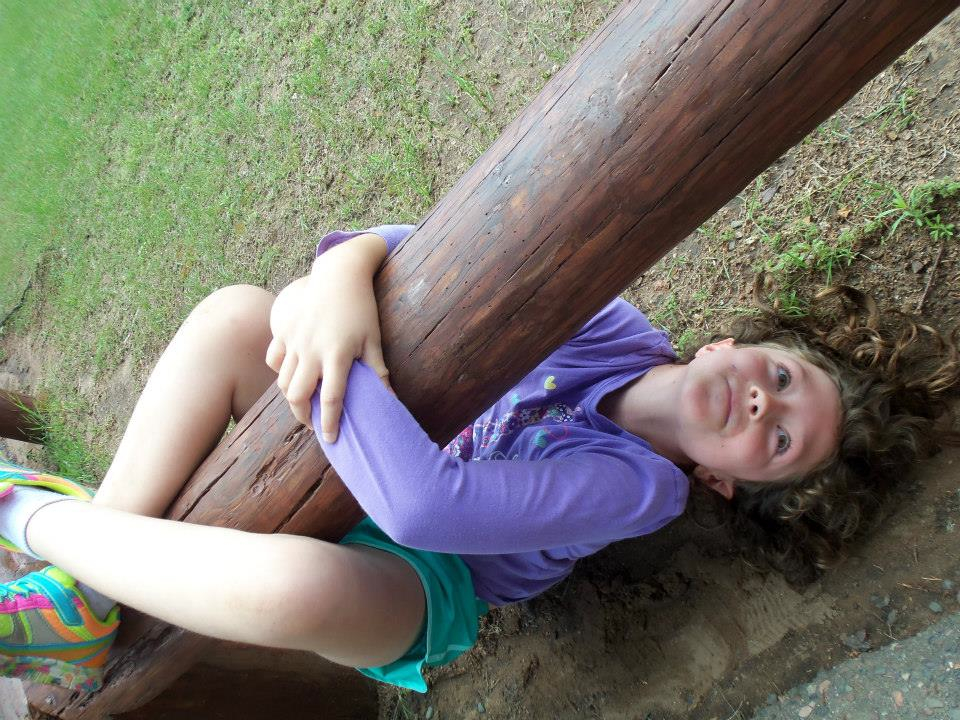 Sell Camp
Sell Camp
Once your camp is selected be sure to talk about it often. Keep selling camp as a positive fun experience. All the friends and excitement. Some things to say include "Sure wish I could go". "Your so lucky". Help to build confidence by focusing on the qualities they have that will make the camp experience easy for them. Of course you don't want to overload future campers with too much information so as a parent pace yourself and bring it up 1 or 2 times a week at most.
We All Love Routines
"Summer amp is filled with routines, Days are scheduled much more than it looks from the outside world" says Jeff Lorenz, Director of Swift Nature Camp. It's best to become familiar with the camp routines and then build some of them in to your child's day. That way you will reduce camp trauma and make it easier to fit into camp life. This can include: making beds, packing and cleaning up. Personal responsibility is important at camp as well, including: brushing your teeth and getting dressed. At home use meal time as a time to practice trying new foods and helping to cleaning up.
Lights Out
Often one of the hardest parts of camp is after a day of fun is over and we are tucked in our bed and the lights go out. This is when we start to think of home and all that we are missing. To help your child beforehand it is good that they have some experience with sleepovers at friends or relative. Try not to talk with them while they are gone. This is a time to build independence. Falling asleep strategies are important as well, like deep breathing or visualizing himself at a favorite place. Since camp at night can be dark and quiet be sure to help your child be prepared for such a experience. Often a camp flashlight can make campers feel more secure.
Living Communally
One of the biggest part of overnight summer camp is living with a group of people for a few weeks. It is this experience that is at the heart of camp. Most campers say they make better friends at camp than at school. Why because we live together sharing life. Relationships are the heart of every camp experience, Since camp is like a family it is good to revisit some of the ways we deal with people. They have the power to make everyone's experience at camp better by being a supportive member of the team. Prepare your child for a diverse cabin getting along with a wide variety of people is so important. Help them to make new friends by asking about others' interests and being a good listener. Friendships at camp often last a lifetime.
Nature
Summer camp involves fun & relationships all in the great outdoors. Help them to appreciate nature and the outside. All the cool things that are outside waiting to be discovered. Help them to also be aware how to be safe outside. This includes, Drinking water, using sunscreen, and bug spray. Also ask what else they may be afraid of, this will help you ease those fears.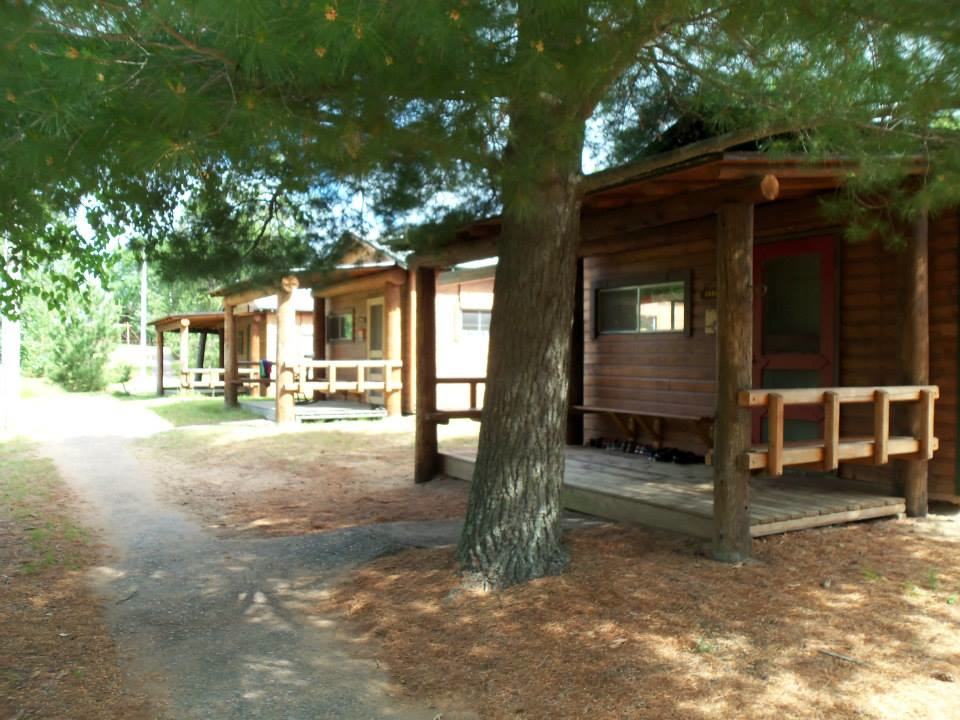
Homesickness is not an illness
Homesickness is not an illness it just means you are loved back home. So don't make your child feel as if this is a sickness it is a normal feeling. Let your child know they may experience it by feeling lonely or even have a stomachache. Let them know staff are on hand to help so be sure to let them know, they will help and try to get them feeling better as quickly as possible. Jeff Lorenz says "Please parents do not tell your child that you will save them if they are homesick, this only sets them up for failure. Instead highlight qualities they have that will help them stay the full session,"
Off to Camp
Be sure to pre write letters to your child. That way the first day they will have mail. Your mail should not tell them how lonely it is with out them or how bad you miss them. But instead say a few dull things about home then ask questions about food, friends activities and more. Hopefully you per-addressed some envelopes to ensure a response.
Sharing
Talk and listen is so important in this time leading up to camp. What your child have to say about camp? What are the hopes and fears? What do they say to friends? If the questions or concerns linger have your camper call or email the directors to get an answer. Help your child realize they are not alone and millions of children every summer head off to overnight summer camp. Most have the time of their life and can not wait to return, we at Swift Nature Camp wish the best for you and your family. Parents we know this is not an easy decision, we have sent our child off to another summer camp and cried the day he left and felt the wonderful experience filled with new friends , fun and opportunities of self-reliance on the day we picked him up. One last thing Summer camp is a reflection of life, it is not Disneyland. Remind yourself and child of this their will be good days and not so good days, but our goal is to have more good than bad.
If you would like more information about Finding the Best Overnight Summer Camp for your child please feel free to call us or email.
Happy Trails Lonnie & Jeff

The Best Thing You Can Do For Your Kids This Summer? Let Them Be Bored
Child psychologists insist that boredom is an enriching experience.
With the rise of screen time and “helicopter parenting”, i.e. hovering, we’ve seen a decline in the good-natured negligence that many of us were raised with during the 80’s and 90’s, which consisted of “go outside and play, now.” Parents nowadays feel pressured to turn their children into productive little performers, by filling their time with camps, sports, lessons and play dates. And while there are advantages too, say, learning to play the piano, researchers insist that the absence of planned activities is also an enriching experience. The best thing you can do for your kids this summer? Let them be bored.
“Your role as a parent is to prepare children to take their place in society. Being an adult means occupying yourself and filling up your leisure time in a way that will make you happy,” explains Lyn Fry, child psychologist, “If parents spend all their time filling up their child’s spare time, then the child’s never going to learn to do this for themselves.”
For the same reason that mindfulness has spread like wildfire among the wellness community, children also need to learn strategies to contend with the fast-paced, virtually-ruled nature of modern society. We also know, as adults, that being stripped of our televisions, iPads, and obligations are bound to offer a refreshing perspective and force us to interact with our surroundings in a new and different way.
Certainly, it is tempting, and perhaps we have been conditioned to feel that being bored is a waste of time. Not so— idleness is integral to allow our imaginations to grow. Dr. Teresa Belton, a visiting fellow at the University of East Anglia told the BBC that boredom is crucial for humans to develop “internal stimulus,” which, in turn, cultivates true creativity.
“There’s no problem with being bored,” says Fry. “It’s not a sin, is it? I think children need to learn how to be bored in order to motivate themselves to get things done. Being bored is a way to make children self-reliant.” Another way this helps kids is by eliminating the cycle of seeking validation for every little thing they do. Throwing out expectations is a tool to help kids truly know themselves and their preferences, and become more individually confident.
This summer, take away the screens and let kids simply do their own thing, such as playing with their toys in their room or outside in the yard. Experts also encourage writing a list of activities with children, including basic past times such as riding a bike, playing cards, drawing with sidewalk chalk, painting or reading a book. When your children approach you complaining of being bored, remind them to refer to the list. They’ll thank you later.
True Activist / //www.trueactivist.com/the-best-thing-you-can-do-for-your-kids-this-summer-let-them-be-bored/This email address is being protected from spambots. You need JavaScript enabled to view it.">Report a typo
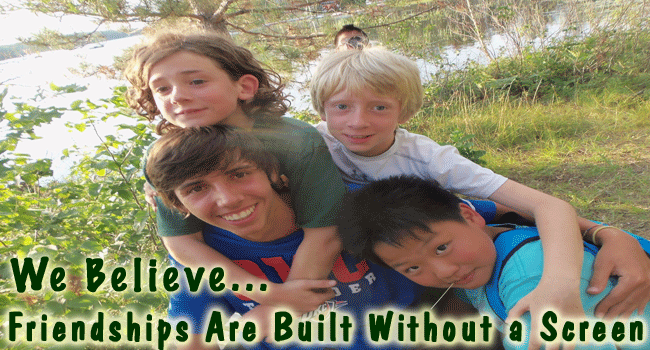
Enjoy a Summer Camp In the USA
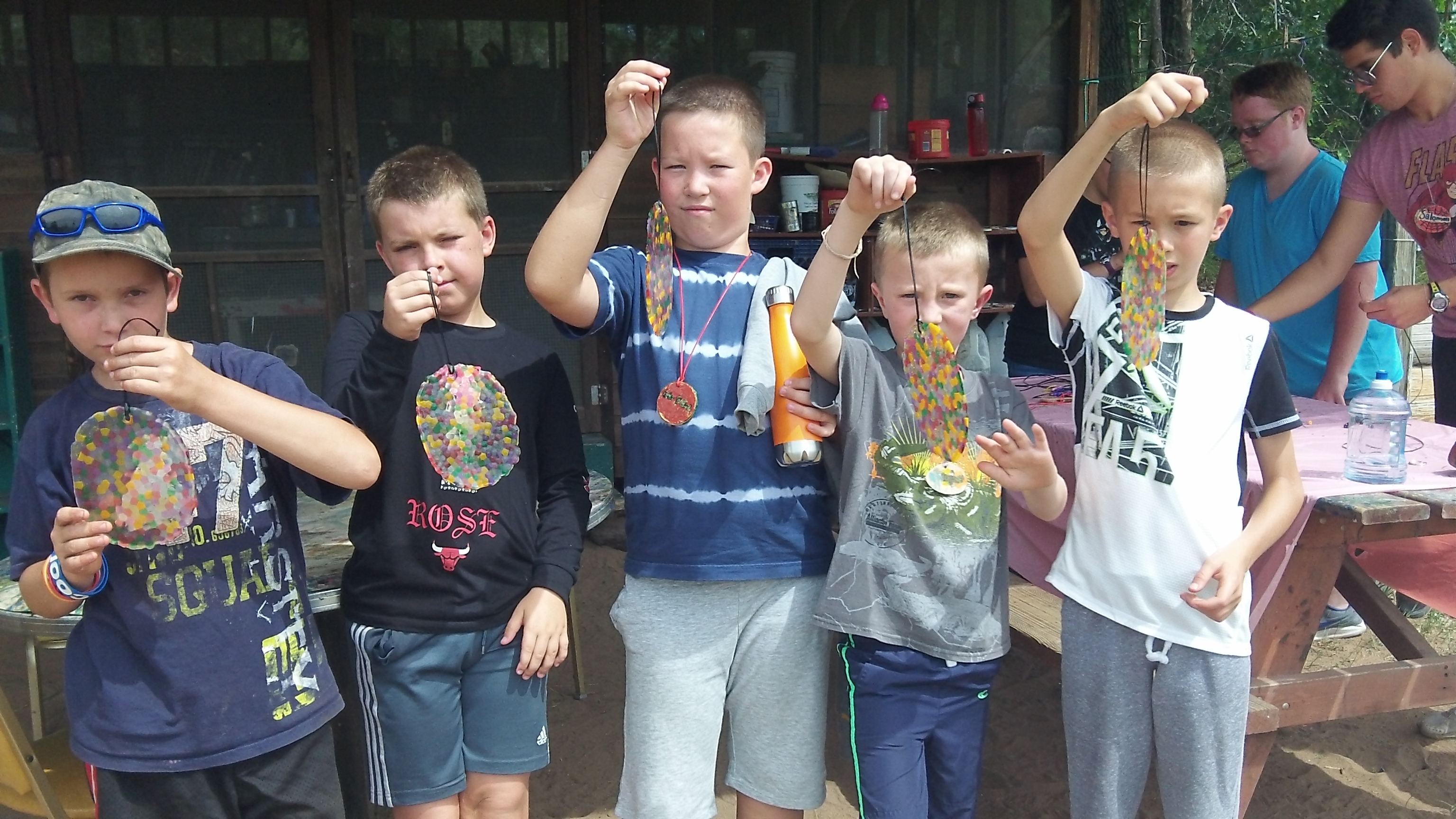
As a parent, these are the questions that went through my head as I sent my child to a different overnight summer camp. Does sending my kid away mean I do not love them? Does it mean I am selfish? Does it mean I am a BAD parent?
Actually sending your child to Overnight summer camp means none of these things. Often parents need to hear again all the benefits of summer camp, here are a few:
9. Kids are active – These days a child's life is sedentary in school, online and inside. Every moment at camp is filled with motion, from play to learning or even walking to the bathroom.
8. Experience successes – Camp's main goal is to build kids up. So at SNC we find what kids can succeed and that helps them feel more confident.
7. Gain resiliency – Life is filled with setbacks. At camp setbacks can be handled in a positive way. For instance, a group may have a difficult canoe trip, yet together they persevered and made it. Knowing you can make it is an amazing lesson.
6. Unplug – Technology has taken over our life. No time in history have children been so connected to it. In the old days kids watched TV for 2-3 hours a day now a screen is watched 7-9 hrs a day. Get back to real connections.
5. Independent – This day and age kids are scheduled most of the day. Camp gives children the ability to make choices for themselves. A skill needed in life. Wrong decisions can be gently handled and right decisions applauded by peers and non parental units.
4. Play – In nature animals learn by play. We all love watching the wolf pups play, but they are really getting ready for life. Same is true with children, they learn by having unorganized free play. Something that was a staple in kids growing up in the past. Camp still provides this in a safe, child friendly atmosphere.
3. Social skills – Living in a communal setting, like camp, provides amazing opportunities for children to learn personal skills like, empathy, resolving disagreements, teamwork and healthy communication.
2. Enjoy nature – Kids lives have become an indoor life. Nature is missing and all the research shows this is having a negative effect on today's kids. Higher stress, obesity and insecurity. Nature supports healthy child development and enriches kid’s perception of the world.
1. Friendships–Swift Nature Camp has only one mission to help children be their best. We do this in a fun and supportive way. By building friendships with people that truly care. we help child make better friends. Campers will tell you their best friends are at camp. Why? When you live with people, you learn to accept them, you build tolerance and over time your difference become bonds. The result is a summer family.
So as you are thinking about the adventure your child will be on this summer, don't rule out the Northwoods of Wisconsin and Swift Nature Camp.

So how does summer camp change kids lives? Not every camp is the same, so I can only speak about our overnight summer camp. Swift Nature Camp is located in the Northwoods of Wisconsin. We cater to children 6–15, with a leadership program for our 16 & 17 year old campers. Our small camp blends old-fashioned camp activities on land and water, with environmental and nature learning. Plus we have a camp zoo, where children who love animals can even adopt one while they are at camp.
Here are ways that children’s lives are changed because of camp:
1) Great Staff- When you get young people who are dedicated to kids full time, your child feels it. Camp counselors have boundless energy and enthusiasm- something parents often loose as they get older. It’s like having the best big sister or brother in the world who really cares about you. They want you to be your best. So children look up to these counselors and since they are role modeling positive values, your child will pick those up and bring them home.
2) Communal Living- Yes, your child will be living in a cabin with 5–8 other children of their own age, building new friendships and developing strong new social circles. For most children this is a new experience. When you live with others, you have to be a little less worried about yourself and be thinking more about others. That is part of the natural progression of kids from self to others. Camp pushes them a little further along this road.
3) Nature-This day and age we live our lives inside. There is a big beautiful world out there that children should learn about and they should not be afraid of. All of science is saying, humans need to be connected to their environment, enjoy the beauty of the simple things in life. That’s why at SNC, we often take our kids to the lake to quietly enjoy a sunset.
4) Independence- Today we have so many types of parents, and often we see loving parents that hold their children back, not intentionally. But, sometimes they just don’t see that kids need and want to get out on their own, make decisions on their own and try new things. A Nature Camp is a safe place to try things, make mistakes and move on. This is all part of growing up and camp is the safe and supervised place this takes place.
5) Play is an amazing tool. It helps children get exercise, loose weight and feel better. More important, Free Play can help children resolve conflict, problem solve and be creative. Daily, at camp have 1.5 hours dedicated to free play, where campers can do the activities they want to do. This is like the old days, when children could just go outside and play.
One thing we hear from parents every summer is “I wish I would have sent my child to Swift Nature Camp sooner” you see, childhood is a once-off thing. Too soon it’s over, and you can’t reclaim the years, but you can look back on incredible memories. That’s why summer camp is so important — it’s a fun, positive experience where children can simply be children and have the time of their lives. Overnight summer camp is a vital part of a child’s personal growth and development
It’s the small size and attention to detail that makes camp so successful at promote each child’s personal development. Sending your child to Swift Nature Camp is a gift, one your child will cherish for the rest of their life. Maybe that’s why 92% of our campers want to return each summer to this Wisconsin Summer Camp.
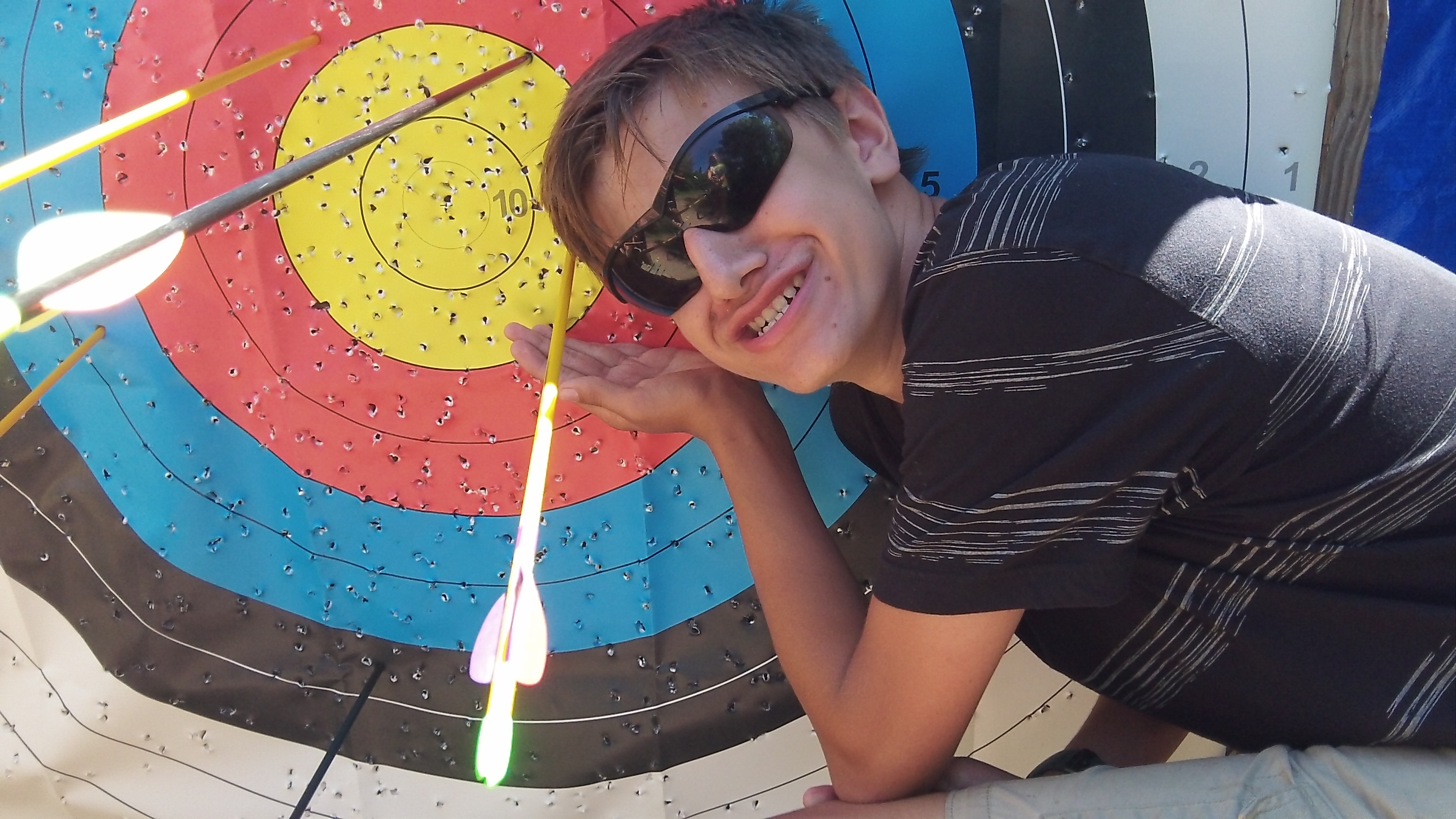
-
*What is the camper to counselor ratio for the majority of the day? How many staff total at camp? What are the ages of Counselors?
-
*How do they handle supervision of children, discipline issues? What is the discipline policy? When do they send a camper home?
-
*What age groups will be combined together? Do younger children mixed with older children? How are activities different for different ages?
-
*What is the schedule for the program, what will they be doing each day? What is planned or free choice? How much non-active time?
-
*What are the qualifications of the Counselors? What about training. Do they have First Aid and CPR?
-
*Are staff up-to-date on criminal background checks?
-
*What is the policy for handling injuries and illness? Who is at camp to give care?
-
*Do the campers go swimming or near water? Do campers take swim proficiency tests? Are there a lifeguards on duty?
-
*What insurance does the program carry? Do they have liability insurance?
- ,
- These are all great things to think about. at Swift Nature Camp we have a Summer Camp Parent Answer Page that helps parents make a very informed decision. We believe we want you to have too much information so you KNOW you made the right decision.
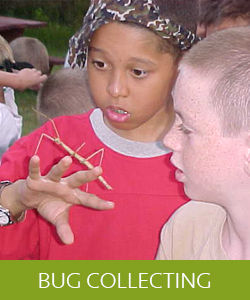 Parents & Campers,
Parents & Campers,- When selecting a summer camp it is import that you pick the right summer camp for you. Sure all camps have fancy summer camp websites, but often you may have particular questions you you want to ask in person, Summer Camp Opportunity Fairs (Camp Expos) offer just such an chance. Below is a list camp fairs we will be attending in Wisconsin and Illinois. . So f you want to learn more about camp come see us or if you are an alumni please stop by and say "HI". We are always happy to talk about camp.
-
SUMMER CAMP EXPO- SUMMER CAMP FAIR
PLACES TO FIND SWIFT NATURE CAMP THIS SPRING
FEBRUARY 7th,
Summer Recreation Open House, York Community High School, Elmhurst, IL, 6pm to 8pm
- FEBRUARY 13th,
Fox Vally Summer Activities Fair, Wredling Middle School, 1200 Dunham Rd., St. Charles, IL, 6pm to 8pm - FEBRUARY 25th,
CampExpo at Sunset Ridge School 525 Sunset Ridge Northfield Il. 10am to 2pm - FEBRUARY 25th,
Minnesota Parent Camp Fair, Como Zoo & Conservatory, St. Paul, MN, 10am to 2pm (will not attend but will have brochures there) - MARCH 6th,
Stratford Middle School Summer Activities Fair, Stratford Middle School, Bloomingdale, IL, 6pm-8pm - MARCH 9th,
District 181 Summer Camp Expo, Clarendon Hills Prospect School, 100 N. Prospect Ave., Clarendon Hills, IL, 6pm-8:30pm - MARCH 13th,
STAGE 203 Summer Activities Fair, Kennedy Junior High School, Lisle, IL, 6pm to 8pm - MARCH 21st,
Indian Prairie Summer Activities Fair, Still Middles School, 787 Meadowridge Dr., Aurora, IL, 6pm to 8pm







